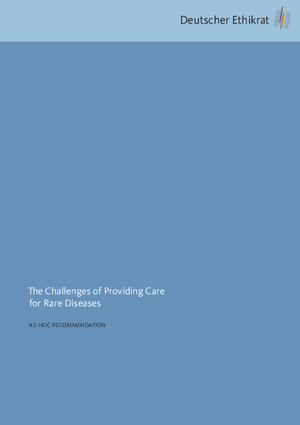The Challenges of Providing Care for Rare Diseases
Published: 23 November 2018
In Germany, there are approximately four million people with a rare disease who are repeatedly confronted with a multitude of problems. Diagnoses are frequently made incorrectly or late. Those affected suffer from a lack of information and practical support in everyday life, and qualified specialist facilities are often difficult to reach. In a health care system geared to the major widespread diseases, structural, medical and economic reasons hamper medical care and research to improve diagnosis and therapy concerning rare diseases.
In its Ad hoc Recommendation, the German Ethics Council advocates improving medical care for people with rare diseases and promoting their opportunities for participation. The Council calls for a series of measures that adequately take into account the needs of those affected, both in clinical research and the health care system. This includes first and foremost the nationwide establishment of certified centres, intended to provide multi-professional care and to guide those affected in the health care system. The poor health care situation of people with rare diseases can also be countered by improving education and training within the health care professions. Research in order to improve diagnosis, therapy and prevention of rare diseases should generally be strengthened, also by including patients in the development of publicly funded research projects. In this respect, the rich experience of self-help groups and patient organisations could be of great use.
The ethical issues raised in the contexts addressed require an open and transparent dialogue with those affected, those involved in medical care and research, and within society as a whole.

